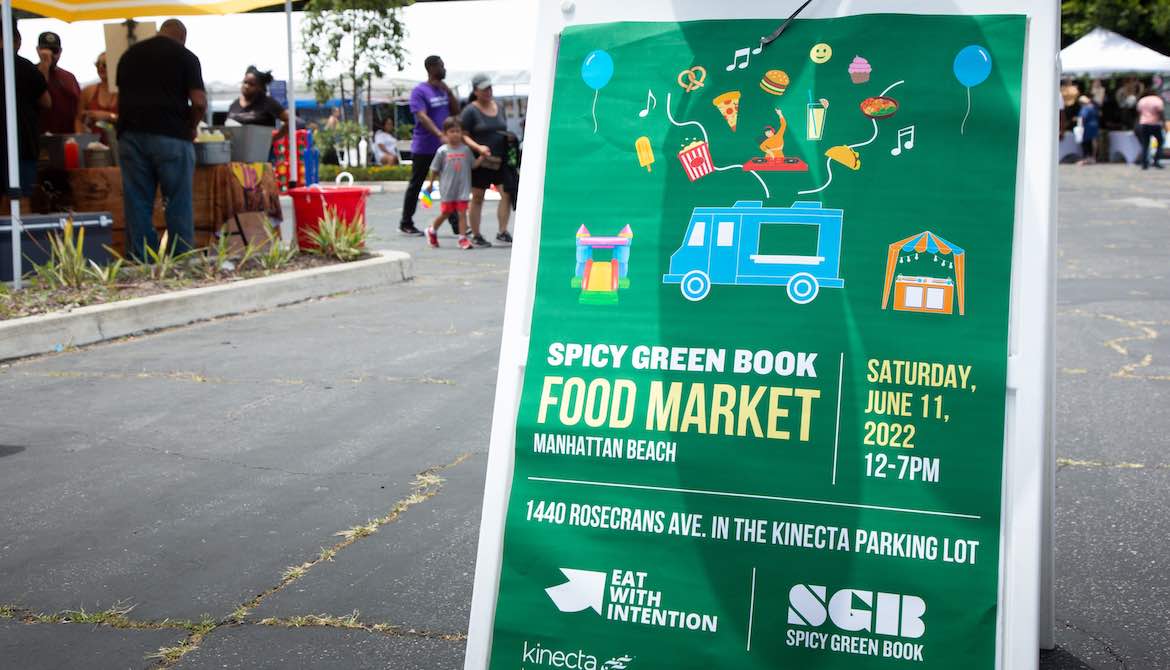4 minutes
CU’s Diversity Council leads the way with internal and community-based equity education and efforts.
Two of the cornerstones of the credit union movement are a focus on community involvement and providing equitable financial services. Credit unions were created to serve local communities, especially those who have been overlooked and underserved. As community-based cooperatives, CUs also often have a deep understanding of the struggles their members face and offer services to help.
Credit unions have a unique opportunity to be leaders in their communities by investing in and/or implementing services to improve the lives of those who live there, such as fundraising, sponsoring events and developing partnerships with nonprofit organizations to drive charitable activities. One way $6.6 billion Kinecta Federal Credit Union, Manhattan Beach, California, has invested in its communities has been through its Diversity Council’s outreach efforts. Formed in 2020 by a cross-section of employees of the credit union, the mission of the council has been to promote equity and inclusion among its employees, members and communities.
Learning About Diversity
Through the work of the council, Kinecta FCU’s employees participate in a series of training courses that focus on such topics as unconscious bias, microaggressions and cultural sensitivity. The Kinecta Emerging Leaders Program was created to encourage and develop future leaders and diverse representation within the organization. Through mentorship opportunities and leadership assessments, KELP participants learn from senior leaders both inside and outside of the credit union.
In addition, Kinecta FCU’s newly created employee resource groups raise awareness and give a voice to underrepresented employees, offering them an opportunity to network and work on professional development. The CU currently has six active ERGs within the credit union and plans to add more over time.
Effective Partnership for Community Building
In the community, Kinecta FCU has partnered with Covenant House, which provides shelter for homeless youth, and the Spicy Green Book, a nonprofit virtual directory for Black-owned businesses, among others. I’d like to tell you what we’ve done with Spicy Green Book recently.
The Spicy Green Book’s roots began in the Jim Crow era between 1936 and 1964. During this time, Black men and women were under persistent threat of violence in the form of lynching and other hate crimes. To help them escape this violence, Victor Green created the Green Book, a guide that led Black travelers to a community of businesses throughout the United States where they could eat, sleep and visit without fear of threat or harm.
In today’s age, inspired by Green’s work, Spicy Green Book was launched and continues to support Black businesses and people, specifically Black-owned businesses in the food and beverage industry. To help these businesses survive in a competitive space, the directory provides creative services, resources and a digital directory.
In August of 2021, Kinecta FCU partnered for the first time with Spicy Green Book to host the Manhattan Beach Food Market (in Manhattan Beach, California), an event that celebrated Black culture and food. The focus of the event was to help people make purposeful decisions on where and how to spend their money as well as encourage people to connect and use their buying power to create a more equitable society. Twenty-five vendors at the all-day event provided global food booths from Black-owned businesses along with family-friendly activities to over 800 patrons.
Since then, Kinecta FCU and Spicy Green Book have partnered on additional events and plan to continue the partnership. The latest event was held in June of 2022 at Kinecta’s headquarters in Manhattan Beach and drew over 2,000 patrons.
Be the Spark that Ignites Community Change
The 2020 Census report highlights that the U.S. is becoming increasingly diverse and multiracial and breaking away from traditional demographic lines. The report indicates the Hispanic or Latino population grew 23% and the multiracial population experienced a 276% increase from 2010 to 2020. Businesses that recognize and embrace these rapid changes in our population and contribute to a more equitable and inclusive society will be viewed as trusted allies, creating long-lasting relationships with those they aim to serve.
Creating a more equitable and inclusive society cannot be done in a silo but credit unions can help pave the way for other businesses and entities as they work to empower the underrepresented and make lasting change in their communities.
From the environment they provide their employees to the services they offer their members to the charitable activities they support in their communities, credit unions have an immense opportunity to bring meaningful change to the lives of those they touch.
CUES member Kim Graham is VP/HR and talent development at $6.6. billion Kinecta Federal Credit Union, Manhattan Beach, California. She leads a cross-functional team responsible for succession planning, workforce planning, employee rewards and recognition, employee recruitment and retention and all other activities involving the management of Kinecta’s human capital business strategy. She led Kinecta to obtain a "Great Place to Work" certification and is the executive sponsor of the credit union’s Diversity Council. Before joining the credit union, Kim held senior HR positions at Moog and Boeing and spent 25 years in HR, benefits and compensation roles at Mattel. She earned her master's degree in psychology from Cal State LA, and her bachelor's degree in psychology from UC Irvine.





